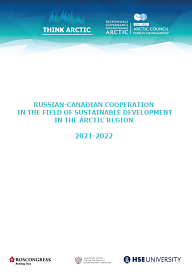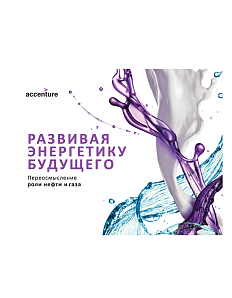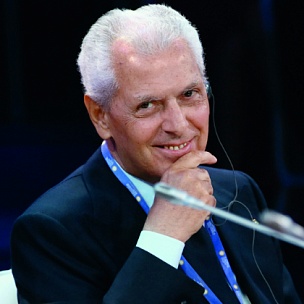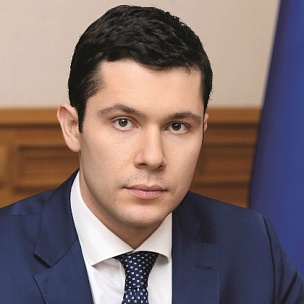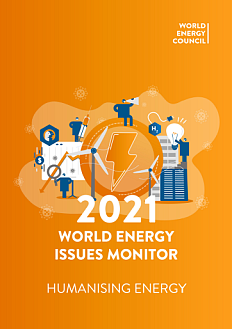The report was prepared as a result of the event «Russian-Canadian Cooperation in the Field of Sustainable Development in the Arctic Region» as part of the ThinkArctic Project, organized by the Roscongress Foundation, the Center for Comprehensive European and International Studies, and the Analytical Center for the Government of the Russian Federation. ThinkArctic Project will be conducted within the Program of the Russian Chairmanship in the Arctic Council during 2021-2023.
Canada’s Arctic Strategy: Priorities, Objectives and Mechanisms
The Arctic is central to national priorities for identity and security and is an integral part of Canada’s national values and interests. The Canadian Arctic covers 40% of the country’s territory, more than 200 thousand people live in Arctic territories, more than half of whom are representatives of the northern Indigenous peoples.
Many departments of the Government of Canada, both inside and outside the country, are involved in promoting Canada’s Arctic priorities.
As part of its Arctic policy, Canada strives to address the causes and consequences of climate change, to establish relations between the northern Indigenous peoples and representatives of other peoples of Canada based on trust and mutual respect, support for sustainable economic development of the North. To achieve these goals, work is carried out with local communities, NGOs and NGOs within Canada, as well as with international partners.
Global Affairs Canada is responsible for coordinating and guiding the international aspects of Canadian Arctic policy. This work is mainly carried out by Nordic and Polar Relations Division in Ottawa, and the Canadian International Arctic Centre (CIAC), located in Oslo, Norway, as well as by Canadian embassies around the world. The main objectives promoted by Global Affairs Canada’s in the circumpolar Arctic include:
— Support the identification of targeted, innovative trade and commercial opportunities for the North, benefiting Northerners;
— Help position Canada as a global leader in Arctic science and research;
— Assert Canadian positions and contribute to raising Canada’s profile on Northern issues, through an active advocacy strategy involving Northern participation.
In September 2019, Canada released the Arctic and Northern Policy Framework, which defines general priorities of the Government of Canada’s activities in the Arctic up to 2030 and beyond. As it is noted in the document, a key international commitment underpinning Canada’s Arctic and Northern Policy Framework is the 2030 United Nations Agenda for Sustainable Development. The 2019 Arctic and Northern Canadian Policy Framework sets out the following goals:
— Goal 2: Strengthened Infrastructure that Closes Gaps with Other Regions of Canada;
— Goal 3: Strong, Sustainable, Diversified and Inclusive Local and Regional Economies;
— Goal 4: Knowledge and Understanding Guides Decision-making;
— Goal 5: Canadian Arctic and Northern Ecosystems are Healthy and Resilient;
— Goal 6: The Rules-based International Order in the Arctic Responds Effectively to New Challenges and Opportunities;
— Goal 7: The Canadian Arctic and North and its People are Safe, Secure and Well-defended;
— Goal 8: Reconciliation Supports Self-determination and Nurtures Mutually Respectful Relationships Between Indigenous and Non-Indigenous Peoples.
Mechanisms and Formats of Canada’s International Cooperation
Canada considers the Arctic Council, the Arctic Coast Guard Forum, the Arctic Economic Council and various UN organizations, including the International Maritime Organization, to be the leading multilateral formats for discussing the Arctic agenda.
Bilateral Mechanisms
The Arctic and North Policy Framework notes the importance of Canada’s engagement with Arctic and non-Arctic states. First of all, these are the United States and Denmark. Demographic, geographical and socio-economic similarities between the Canadian Arctic, American Alaska and Danish Greenland serve as the basis for cooperation between states.
The specificity of the Canadian approach is cooperation not only at the level of central governments, but also at the level of the leadership of territories and provinces, at the level of organizations representing the interests of Indigenous minorities.
With the U.S. and Denmark, Canada is seeking a peaceful bilateral settlement of maritime boundary disputes. A special role in Canadian international cooperation is played by interaction with the Nordic countries — Finland, Iceland, Norway and Sweden. Interaction with these states on the development of the north and the Arctic takes place mainly within the framework of the Nordic Council of Ministers.
Canada plans to build relationships with Russia on key issues on the Arctic agenda, such as Indigenous issues, scientific cooperation, environmental protection, shipping and search and rescue.
Russian-Canadian Cooperation in the Field of Sustainable Development
Russia and Canada act from similar positions in the area of sustainable development of the Arctic region and establishing international partnership in the «Northern dimension». Contacts between officials, experts, representatives of the academic community are maintained in different areas, including issues concerning the rights of Indigenous peoples of the North, the continental shelf, climate, environmental protection, fishing, and shipping in the Arctic.
Russian-Canadian cooperation is distinguished by a well-developed legislative framework. In the field of cooperation in the Arctic region, the first comprehensive document was the Agreement between the Government of the Russian Federation and the Government of Canada on Cooperation in the Arctic and the North, signed on June 19, 1992. Among other areas of cooperation, the following were identified that are in line with the UN SDGs:
— Rational land use and land management;
— Prevention of the transfer and effects of harmful pollutants on the environment;
— Education and training;
— Fisheries sciences and technologies;
— Healthcare;
— Tourism.
Russian-Canadian Cooperation in Multilateral formats
The most intensive cooperation between Canada and Russia in the field of sustainable development takes place in a multilateral format within the framework of the Arctic Council. In 2020, within the framework of the Sustainable Development Working Group under the leadership of Russia, the Arctic Demographic Index project was launched. Norway and Canada are co-leaders. The aim of this project is to develop a methodology for calculating the demographic index based on two natural parameters: natural decline and natural population growth, and one mechanical: migration flows.
The Sustainable Development Working Group (SDWG) is completing a project related to food security, which is titled «Arctic Foods Innovation Cluster (AFIC)». Under this project, the working group has developed the plan of establishing the Arctic Food Innovation Cluster, which is aimed to address current regional and global challenges in the field of food security.
Several projects with the participation of Russia and Canada have been already completed and extended to the second phase. One of these projects is titled «EALLU Arctic Indigenous Youth, Climate Change and Food Culture» and concerns Indigenous food culture.
Prospects for the Development of Russian-Canadian Cooperation
Cooperation between Russia and Canada is largely affected by the sanctions imposed on Russian individuals and organizations by the Canadian authorities. Nevertheless, the cooperation in the Arctic region has the potential for reviving cooperation in other fields.
Working groups within the framework of Arctic Council will remain the main format of Russian-Canadian cooperation.
- Interaction at the level of Russian and Canadian Groups and Associations of Indigenous Peoples
Russia and Canada are working together on a number of projects aimed on Indigenous rights protection which are being implemented within the framework of multilateral cooperation formats. For instance, Canada and Russia participate in the project «Indigenous Youth of the Arctic, Climate Change and Food Culture», within the framework of the Sustainable Development Working Group of the Arctic Council.
- Healthcare
The northern healthcare sector is a promising area of effective cooperation, both in bilateral intergovernmental formats and in multilateral and non-government formats, for example under the framework of the International Union for Circumpolar Health.
- Cooperation in the Field of Education and Science
Further development of joint research projects and scientific exchange seem promising. Cooperation on the promotion of the languages of the indigenous peoples of the north, on language exchanges between residents of the Canadian and Russian Arctic, including the use of online technologies, can be promising.
- Cooperation in the Field of Environmental Protection and Climate Risk Management
Joint Canadian and Russian measures countering Arctic marine environment pollution could become an important field of cooperation, which is also closely related to the development of environmental monitoring systems.
- Development of Sustainable Tourism
It seems expedient to launch joint tourist programs, which include destinations from the Russian and Canadian Arctic.
- Shipping issues in the Arctic Ocean and territorial boundaries in the Arctic
It seems possible to develop cooperation on the issue of combining efforts to defend new conditions of navigation within the the Northern Sea Route (NSR) and Part of the Northwest Passage, which runs through the Canadian Arctic Archipelagoat the international level, which will bring benefits for Russia and Canada.
- Cooperation at the level of the Arctic regions of Russia and Canada
According to the speakers of the Conference on Russian-Canadian cooperation in the field of sustainable development of the Arctic region, the development of cooperation at the level of the regions of Russia and Canada seems promising. For example, Salekhard and Murmansk could find their twin towns among Canadian cities. It is especially necessary and possible to develop twinning ties between Murmansk and St. Johns, which are united by the history of the northern convoys during the Second World War. It is possible to develop ties with such Canadian cities as Iqaluit, Fort McMurray — cities that are close to the Russian Arctic territories in their geography, economic structure, and history.
- Information exchange
The key issue in the development of Russian-Canadian cooperation in the Arctic is the exchange of scientific information, as well as data related to climate change in the Arctic. In particular, there is the problem of the impossibility of data exchange in the current political conditions, which seriously reduces the effectiveness of decision-making in the field of sustainable development of the Arctic region.
For more information, see the special sections of the Roscongress Foundation Information and Analytical System: The Arctic, Sustainable Development, Environment, dedicated to the issues of sustainable development of the Arctic; Tourism, Culture, Healthcare, Entrepreneurship, that contain materials on the tourism, culture, healthcare, entrepreneurship.


